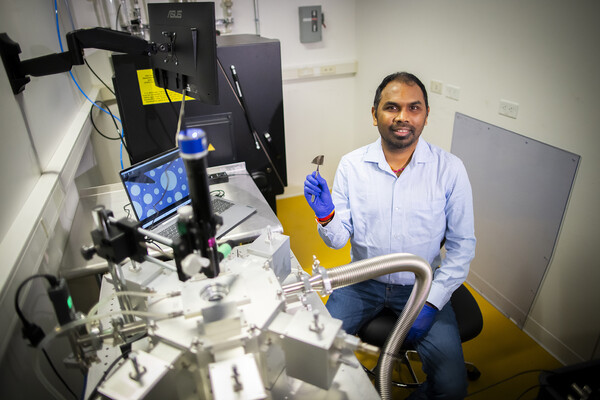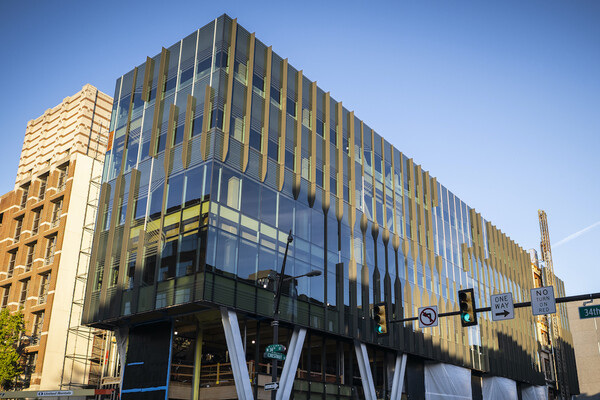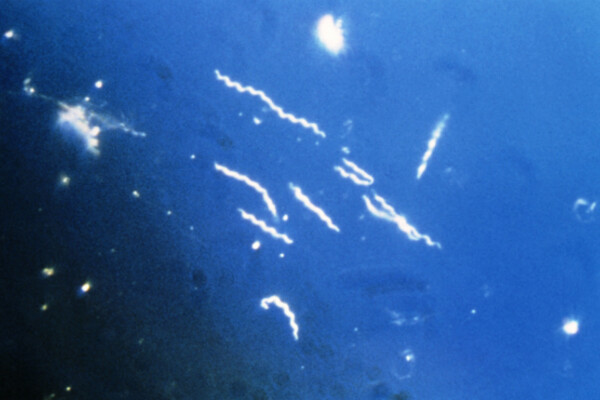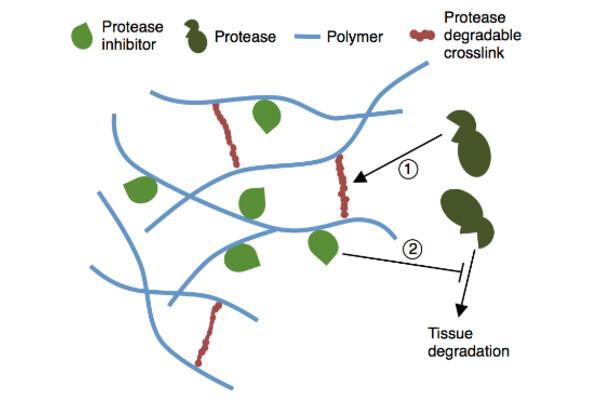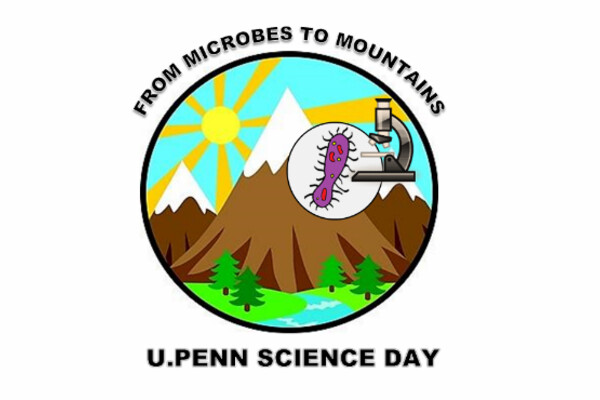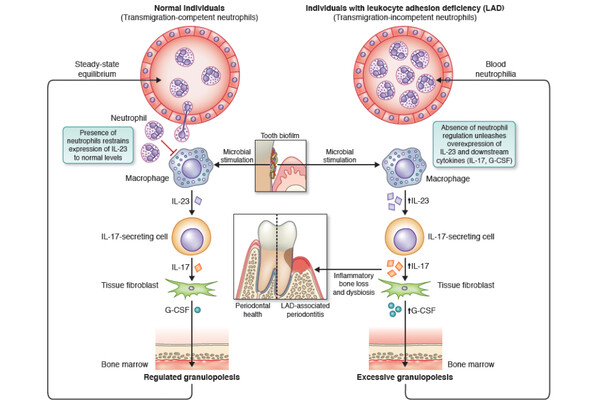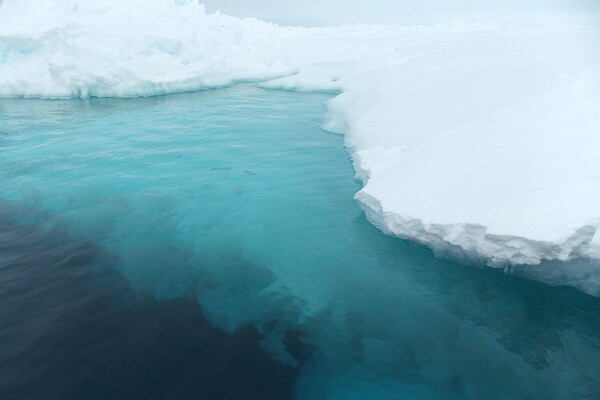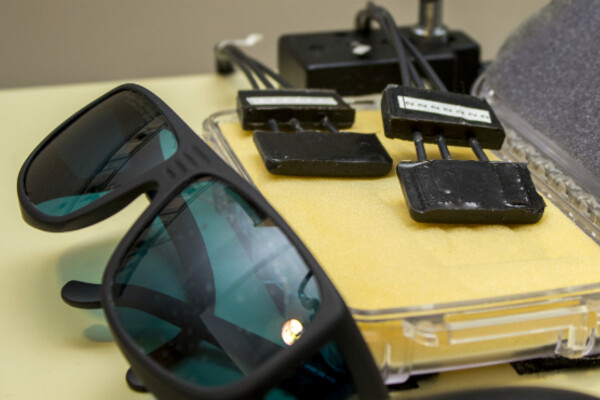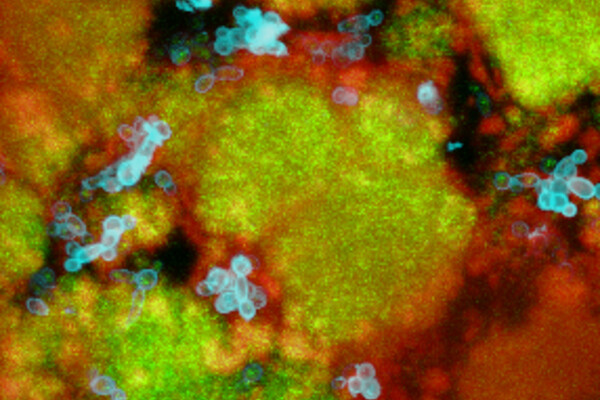5/2
Science & Technology
Strain-specific Lyme Disease Immunity Lasts for Years, Penn Research Finds
Lyme disease, if not treated promptly with antibiotics, can become a lingering problem for those infected.
New Penn-Designed Gel Allows for Targeted Therapy After Heart Attack
Combatting the tissue degrading enzymes that cause lasting damage following a heart attack is tricky. Each patient responds to a heart attack differently and damage can vary from one part of the heart muscle to another, but existing treatments can’t be fine-tuned to deal with this variation.
Penn Students to Host Philadelphia Middle Schoolers for ‘Science Day’ April 3
WHO: Students from the University of Pennsylvania’s Department of Earth and Environmental Science and Rising Sons, a Philadelphia nonprofit
Penn Dental Medicine-NIH Team Reverses Bone Loss in Immune Disorder
Patients with leukocyte adhesion deficiency, or LAD, suffer from frequent bacterial infections, including the severe gum disease known as periodontitis. These patients often lose their teeth early in life.
Disabilities Symposium at Penn: April 11
WHAT: The 13th Annual Disabilities Symposium, hosted by the Weingarten Learning Resources Center, University of Pennsylvania, will welcome guest speakers Angela Duckworth and Adam Taliaferro.
Deep Ocean Current May Slow Due to Climate Change, Penn Research Finds
Far beneath the surface of the ocean, deep currents act as conveyer belts, channeling heat, carbon, oxygen and nutrients around the globe.
Penn-designed Device Shows Promise for Individualized Care in Stroke Patients
Using a University of Pennsylvania-designed device to noninvasively and continuously monitor cerebral blood flow (CBF) in acute stroke patients, researchers from Penn Medicine and the Department of Physics & Astronomy in Penn Arts and Sciences are now learning how head o
Penn Study Suggests Cause of Severe Tooth Decay in Toddlers
Early childhood caries involve a highly aggressive and painful form of tooth decay that frequently occurs in preschool children, especially those who come from backgrounds of poverty. The resulting decay can become so severe that treatment frequently requires surgery.
Owl Monkeys Don’t Cheat, Penn Study Shows; Intense Fathering Plays a Role
True monogamy is rare in the animal kingdom. Even in species that appear to “mate for life,” genetic maternity and paternity tests have revealed that philandering often takes place.
Solving Society's Greatest Energy Challenges
When University sophomore Albert Xiao joined the first class of the Vagelos Integrated Program in Energy Research (VIPER), a dual-degree program in Penn Arts & Sciences and the
In the News
Man does DNA test, not prepared for what comes back ‘unusually high’
César de la Fuente of the School of Engineering and Applied Science and Perelman School of Medicine says that Neanderthal DNA provides insights into human evolution, population dynamics, and genetic adaptations, including correlations with traits such as immunity and susceptibility to diseases.
FULL STORY →
Forecast group predicts busiest hurricane season on record with 33 storms
A research team led by Michael Mann of the School of Arts & Sciences is predicting the upcoming Atlantic hurricane season will produce the most named storms on record, fueled by exceptionally warm ocean waters and an expected shift from El Niño to La Niña.
FULL STORY →
My Climate Story: Philly students take science from abstract to personal
The “My Climate Story” project at the Environmental Humanities Department helps students and teachers learn about climate change’s impact in everyday backyards, with remarks from Bethany Wiggin. The idea is credited to María Villarreal, a College of Arts and Sciences second-year from Tampico, Mexico.
FULL STORY →
Penn professor on gen AI’s rapacious use of energy: ‘One of the defining challenges of my career’
Benjamin Lee of the School of Engineering and Applied Science says that hardware and infrastructure costs are growing at high rates for generative AI.
FULL STORY →
Satellite images capture extraordinary flooding in the United Arab Emirates
Michael Mann of the School of Arts & Sciences explains how three low-pressure systems formed a train of storms that battered the United Arab Emirates.
FULL STORY →
Here’s why experts don’t think cloud seeding played a role in Dubai’s downpour
Michael Mann of the School of Arts & Sciences says that many people blaming cloud seeding for Dubai storms are climate change deniers trying to divert attention from what’s really happening.
FULL STORY →
Can we stop AI hallucinations? And do we even want to?
Chris Callison-Burch of the School of Engineering and Applied Science says that auto-regressive generation can make it difficult for language learning models to perform fact-based or symbolic reasoning.
FULL STORY →
“Record-shattering” heat wave in Antarctica — yep, climate change is the culprit
Michael Mann of the School of Arts & Sciences says that persistent summer weather extremes like heat waves are becoming more common as people continue to warm the planet with carbon pollution.
FULL STORY →
How the solar eclipse will affect solar panels and the grid
Benjamin Lee of the School of Engineering and Applied Science says that the electrical grid will have to figure out how to match supply and demand during brief windows where the energy source goes away.
FULL STORY →
Scientists struggle to explain ‘really weird’ spike in world temperatures
Michael Mann of the School of Arts & Sciences says that tendencies to exaggerate climate science in favor of “doomist” narratives helps no one except the fossil fuel industry.
FULL STORY →




